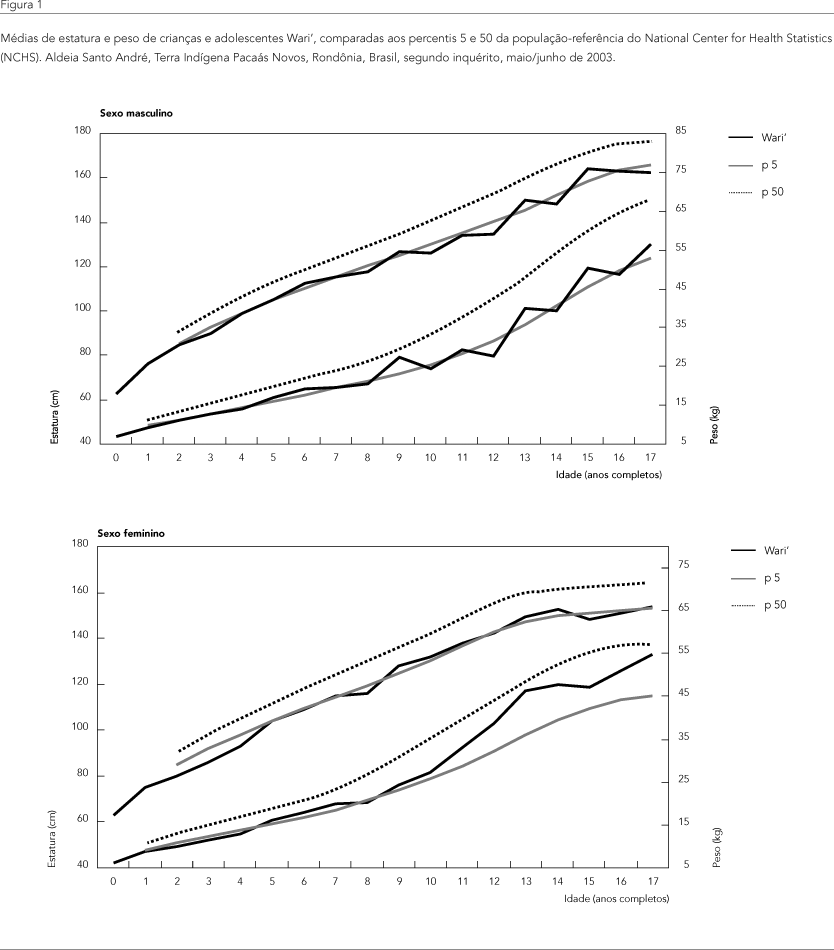Despite the importance of nutritional status and eating practices among Brazilian indigenous populations, the subject has received little research attention. This study examines the Wari' community in Rondônia State, in the southwest Amazon. Two anthropometric surveys, six months apart, were carried out to characterize the group's nutritional status and investigate possible seasonal variations (n = 279 and 266; age range, 0-87 years). Prevalence rates of low height for age (61.7%) and weight for age (51.7%) in Wari' under-5 children were among the highest reported in the literature on indigenous populations in Brazil. Overweight and obesity were not common in the population, regardless of age. According to the anthropometric data, nutritional conditions are generally worse during the rainy season, when undernutrition increases in children, and both male and female adults lose weight. Seasonality is an important factor when defining nutritional surveillance protocols and discussing the nutritional status of indigenous peoples.
Nutritional Status; South American Indians; Anthropometry; Indigenous Health





